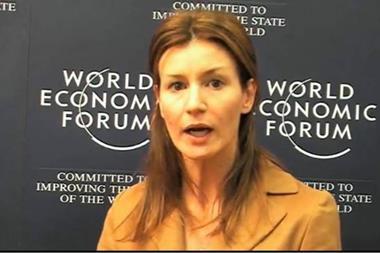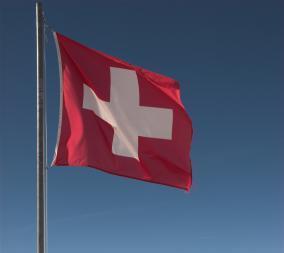A summary of media reports from the World Economic Forum's Alpine meeting of business and political leaders
The mood at this year’s World Economic Forum summit in Davos was anxious as business and world leaders eyed economic recovery cautiously, according to reports from the meeting.
In his blog on the conference, Martin Wolf, of the Financial Times, compared the atmosphere to a medical ward: “It felt like sitting at the bedside of somebody who had survived a heart attack but was unsure how long it would take to recover full vigour, if, indeed, he would at all. The mood was one of anxiety. Meanwhile, the participants looked at the youthful vigour of emerging economies with admiration, envy and even fear.”
Business Week neatly summed up the top themes that emerged from the summit, some of which are outlined below.
The world is not in a good shape: “Figures cited at the Forum show we're a long way from being out of the woods on the global recession,” said Business Week’s Don Tapscott.
“It is estimated that unemployment in the world jumped by 50 million during the recession, and that the number of working poor increased by 200 million.”
Tapscott also cited the growing recognition that many of the world’s economic institutions are no longer capable. Almost everyone, including the scientists at Davos, is deeply troubled by climate change, he said. Lack of access to fresh water is a serious problem.
Some 2.8bn people (or 44%of the world's population) already live in high water-stress areas and the number will increase to 3.9bn by 2030.
Global collaborations are taking over from nation states: The global humanitarian response to Haiti’s earthquake and social media networks are both examples of where global multi-stakeholder cooperation is picking up where nation states and formal institutions left off, said Tapscott.
Financial services need a rethink: “Banks need to be reined in, the sooner the better. For some CEOs the crisis warrants a critical reevaluation of market capitalism,” he said.
Executive pay needs fixing: There was a very strong sentiment at Davos that exorbitant executive compensation needs to be corrected, said Business Week’s man.
Businesses are moving from sustainability talk to action: CEOs everywhere at Davos said we've now arrived at the point where sustainability must be integrated into the business strategy, he continued.
The Times newspaper ran with the headline: “Fear and loathing in the Alps”.
French President Nicolas Sarkozy laid into bakers during his opening address to the WEF meeting. “The speech set the tone for a week of hand-wringing and resentment among delegates, fearful they were being singled out for punishment and worried that over-zealous reformers might end up damaging the global economy,” reported the paper.
The unofficial theme of the summit seemed to be, "kill all the bankers," added the Wall Street Journal. “Popular anger about banks' role in the financial crisis, and their behavior in its aftermath, has spilled over to the world's elite business executives, politicians and regulators.”
There is a general recognition that any new regulation of the banking system needs to be global in nature. But as the Times put it: “In practice, as became apparent last week, politicians eager for the kudos that comes with banker-bashing are racing ahead and doing their own thing.”
Barack Obama set the tone with his announcement of plans to break up the biggest banks and separate their risky trading activities from retail deposits. Britain and France also announced one-off taxes on banker bonuses.
The Wall Street Journal also reported that the UK’s chancellor Alistair Darling was urging banks to reform now to recover from the financial crisis and stem the flood of bad publicity
According to the Times story bankers began a fightback at the conference. "Bob Diamond, president of Barclays, was publicly scornful of the Obama blueprint, saying that the size of institutions and their trading activities had no correlation with their likelihood of failure. “Without risk, we don’t have a banking industry,” he said.”
Finally, the BBC reported that the assembled world leaders vowed to reach a "substantial" deal on climate change when they next meet in Mexico, after a disappointing conclusion to talks in Copenhagen in December. Mexican President Felipe Calderon acknowledged that the accord in Copenhagen "was not enough" and that "nobody was satisfied with it".
See also: WEF highlights key global risks




















No comments yet